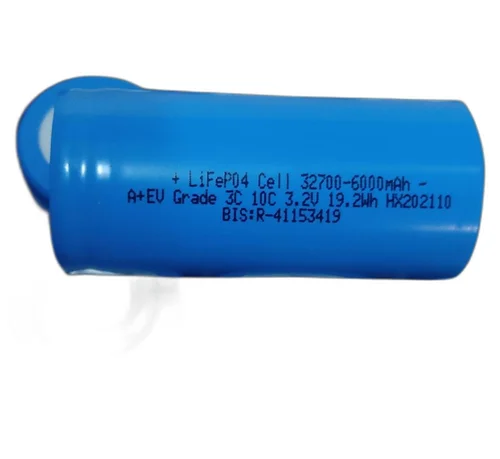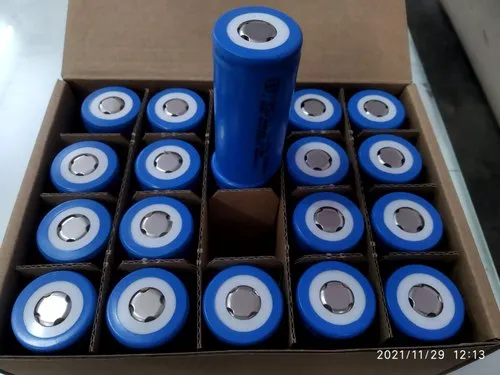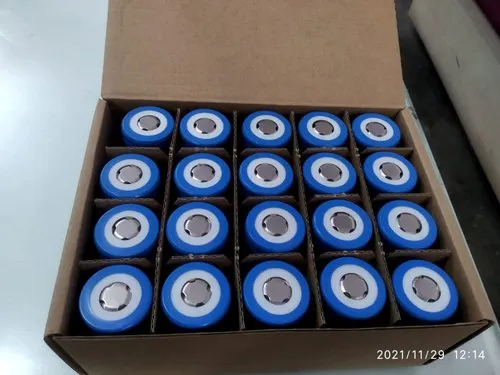Lithium Ion Battery Cell
₹210.0
| Weight | 0.145 Kg |
| Warranty | 1 Year |
| Capacity | >5000 mAh |
| Application Area | for Vehicles |
| Type | Cylindrical Cells |
| Max. Charging Current | 6A |
| Voltage | 3.2 V |
Lithium Phosphate Cell can be use for solar as well as electric vehical application in compact size. This battery cell is safe to use in application. Available brand Fb tech ,Hx etc.
You must be logged in to post a review.
Q & A
Electrochemical batteries, such as lithium-ion batteries, are widely used in various applications, including consumer electronics, electric vehicles, and renewable energy storage. While they offer several advantages over traditional energy storage technologies, their sustainability depends on various factors.
Resource Availability: Electrochemical batteries require certain raw materials, such as lithium, cobalt, nickel, and graphite. The extraction and processing of these materials can have environmental and social impacts. For example, mining lithium and cobalt can lead to habitat destruction and water pollution. Sustainable sourcing practices and responsible mining initiatives are crucial for minimizing these impacts.
Energy Consumption: The production of electrochemical batteries involves energy-intensive processes. The extraction and refining of raw materials, manufacturing of battery components, and assembly all require significant energy inputs. Using renewable energy sources for these processes can reduce the carbon footprint associated with battery production.
Battery Lifespan and Performance: The lifespan of electrochemical batteries affects their sustainability. Longer-lasting batteries reduce the need for frequent replacements, resulting in lower resource consumption and waste generation. Additionally, high-performance batteries with higher energy densities and faster charging capabilities can enable more efficient use of energy.
Recycling and End-of-Life Management: Proper recycling and disposal of batteries are crucial for their sustainability. Many battery chemistries, including lithium-ion batteries, can be recycled to recover valuable materials and minimize environmental impacts. Implementing effective recycling systems and promoting responsible disposal practices are essential to maximize resource recovery and minimize waste.
Research and Development: Continued research and development efforts are vital for improving the sustainability of electrochemical batteries. Innovations focus on developing alternative battery chemistries with reduced reliance on scarce or environmentally sensitive materials, enhancing energy storage capacity, improving charging efficiency, and exploring new recycling methods.
Overall, electrochemical batteries have made significant strides in sustainability, but there are ongoing challenges to address. The industry is actively working on improving the environmental and social impacts associated with battery production, use, and end-of-life management to ensure a more sustainable future for energy storage.
General Inquiries
There are no inquiries yet.



















Reviews
There are no reviews yet.